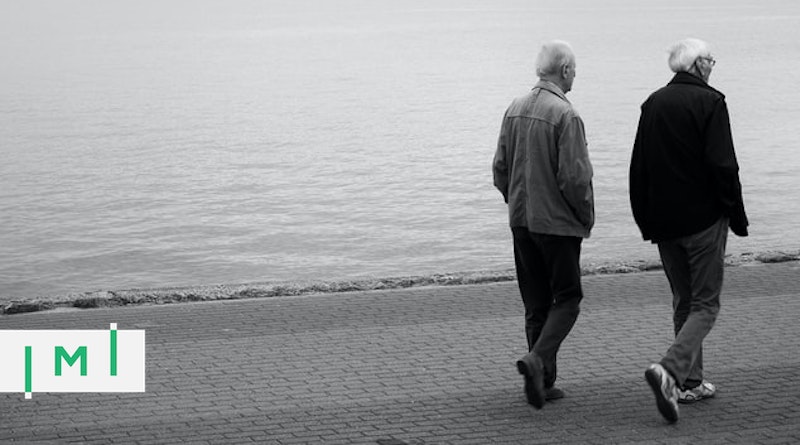Which Caribbean CIP Will Be First to Recognize Same-Sex Spouses?
Citizenship by investment programs deserve massive credit for their contribution towards job creation, social upliftment, and education, especially in small Caribbean countries vulnerable to destructive storms and black swan events impacting tourism.
Yet apart from the regular media bluster about the potential of these programs being exploited by bad actors, there is another unsavoury elephant in the room.
Many industry insiders will consider the below article to be a piece of bad industry coverage; I would like to consider it a piece of advocacy that, if actioned, will allow a single Caribbean CBI jurisdiction to rise to the very top of the log at a time when the entire industry is teetering on the brink of a race to the bottom.
Here goes:
The Caribbean CBI countries have a single and regrettable trait in common; they all have antiquated legislation discriminating against gay people. Unlike in Malta and Cyprus (the Southern half, anyway), the island nations of St Kitts & Nevis, St Lucia, Dominica, Antigua & Barbuda, and Grenada do not recognize gay marriage and civil unions – nor do they allow the spouses of gay applicants to gain second citizenship as dependents under their respective CBI programs.
Moreover, being gay is actually still illegal in all of these countries.
Autres temps, autres moeurs
All five of the abovementioned countries have what I’d like to call “legacy legislation” outlawing same-sex intercourse as indecent – all relics of British colonial law. And sadly, the knock-on effect of these antiquated laws is that gay people still face discrimination in these countries, while gay people enjoy exceptional rights and freedoms in the UK today.
- A Reuters report published in July 2019 states that gay sex is still a punishable offence in Dominica under laws enacted in 1873. The Dominica Labour Party (DLP) led by Prime Minister Roosevelt is a centre-left social democratic party, which in theory should make them excellent potential candidates to champion the cause of repealing these laws. But will they be able to gain enough internal traction to take advantage of this strategic and moral opportunity?
- Under St Lucia’s Criminal Code, No. 9 of 2004 (effective January 1st, 2005), same-sex intercourse is still illegal. Feel free to review sections 132 and 133, dealing with “Gross Indecency” and “Buggery” if you feel like an unpleasant trip down legislative memory lane. The country’s introduction of a COVID-19 Relief Bonds Offer is evidence of their urgent need to bolster government earnings. Could repealing these laws give them an even more effective and appealing offer – not to mention millions of dollars in positive PR exposure?
- In St Kitts & Nevis, the picture is no less disconcerting: Sections 56 and 57 of the “Offences Against the Person Act” criminalises male-on-male sexual activity, with potential prison sentences up to 10 years for those found guilty. St Kitts & Nevis’ is the oldest and one of the most respectable CBI brands in the world. If their government were to move first on this opportunity, would it not cement a dominant market position for years to come?
- While Antigua & Barbuda’s anti-gay sex laws aren’t being enforced, one technically could still spend up to 15 years in prison for gay sex-related “offences”. Could their policy of non-enforcement serve as a launch platform towards the total scrapping of these laws ahead of their competitors?
- With the exception of Grenada, most of the other Caribbean CBIs have enhanced or expanded their passport offering with a view to combating the impact COVID-19 has had on demand. Grenada’s anti-gay legislation too is in dire need of repealing. Could it be that an incisive move to scrap these laws could enable them to steal the entire game in the post-COVID epoch?
Exact statistics about the number of HNW and UHNW gay people in the world are hard to come by, but gay couples are typically less likely to have children, and more likely to have high disposable incomes.
Generalised speculation, you say.
What I do know beyond speculation, however, is that which occurred during the past week:
I was dealing with a prospective (gay male) HNW client who is in the market for a second passport. Given his situation and requirements, I suggested he consider a specific donation-based citizenship program that won’t be named.
A day later, he reverted, saying that his partner, an EU passport holder, would be interested in getting a second passport through the program as well.
When they heard that their (future) marriage would not be recognised by this country, hence making them unable to file a dependent application for his partner under the program, they changed their minds and are now considering a different option entirely.
The country in question just lost a no-effort cash injection, and my guess is that this very situation plays out somewhere in the world every single day.
Just, necessary, and profitable
The first Caribbean CBI to move on this is going to gain a significant competitive advantage – and it’s right within reach for all of them. And, what’s more, a single Caribbean country scrapping their anti-gay laws could trigger a domino effect that would ring in a new era of equal civil rights for the gay citizens of five countries. Now that is a number I can get out of bed for in the morning.
The only question is, will it be E-2 enabled Grenada that moves first, or will it be one of the other challengers? Only time will tell.
PS: As an industry, isn’t it is high time that we start playing a more proactive role in making the world a better place – especially within our direct sphere of industry influence? I challenge you to discuss this topic with your closest CIU Head today.
Andre Bothma is a Cape Town based RCBI marketing and branding professional. Bothma is the Managing Director of a leading South African travel marketing firm and serves as a consultant to citizenship planning firms seeking to maximise their reach online. He holds an honours degree from Rhodes University and serves as the Africa correspondent for IMI Daily.



